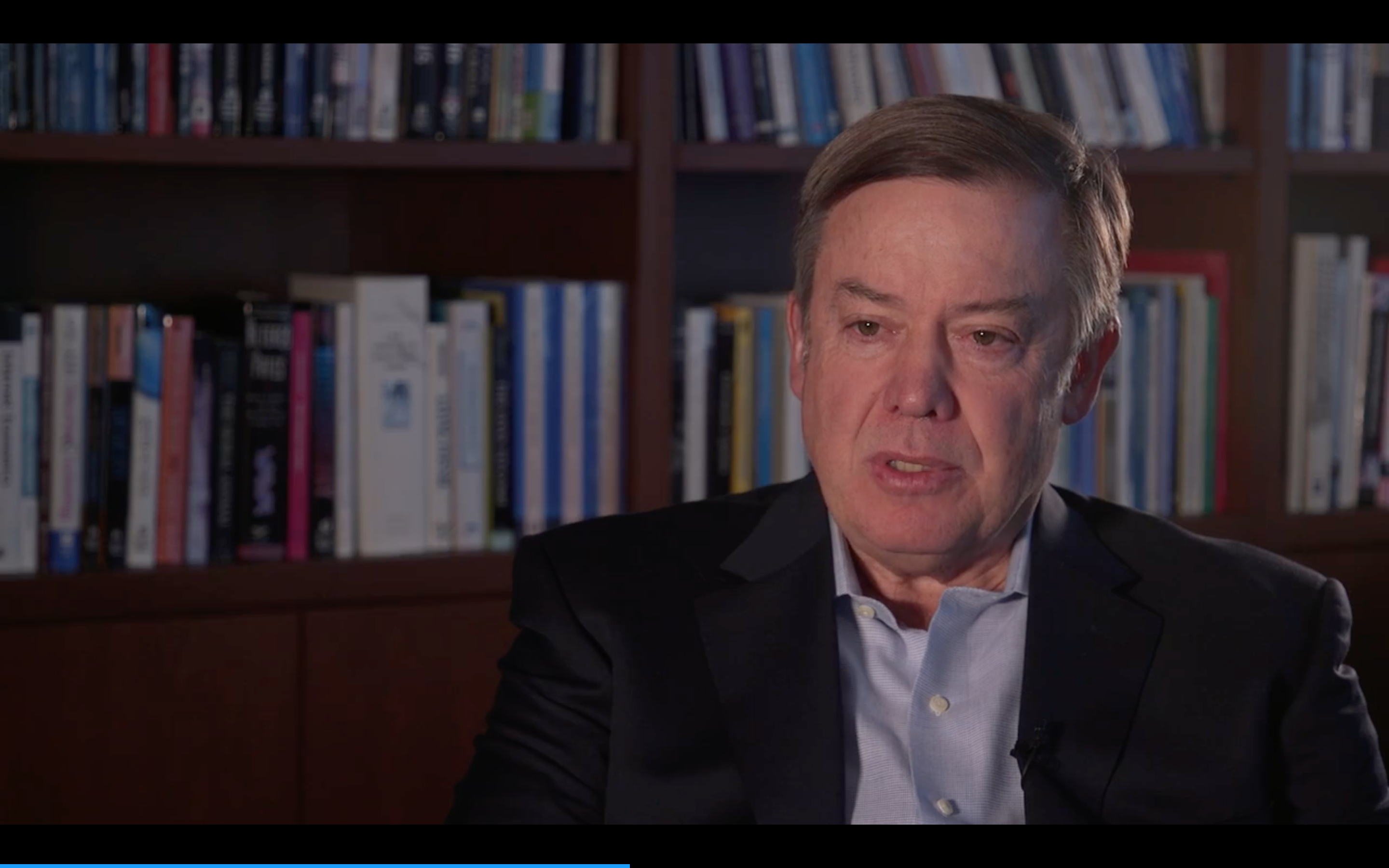
News & Resources
ASU President Michael Crow: College basketball has a fundamental problem

Although the report seems to have holes, Miller did not coach last Saturday's overtime loss at Oregon.
On Thursday afternoon, Miller read a statement to the media in Tucson, vehemently denying ESPN's report and saying he looks forward to coaching again. He made his return to the sidelines on Thursday night in Arizona's 75-67 win over Stanford.
In an hour-long interview, Crow discussed the end of the sport's one-and-done rule, which allows college players to leave for pro basketball after just one college season. He's so against it he's talked with ASU coach Bobby Hurley about not recruiting those types of players.
"What we wanted with Coach Hurley was what Coach Hurley was himself. He was a fantastic four-year basketball player," said Crow.
Crow also said he has confidence in the NCAA to enforce rules and he provided details on a recent recommendation he made to help the enforcement process.
"We’ve got problems," Crow said. "We've got people that are out there running around talking to high school kids, getting them hooked up with someone before they go to college so that they can be hooked up with a professional team down the road. Let’s just stop that."
Crow said he discussed the one-and-done rule to former NBA commissioner David Stern years ago. He told Stern that the league shouldn't take anyone but college graduates. Stern told him that wasn't possible. Crow believes there's middle ground.
In his vision:
"No one’s going to be talking to anybody about professional basketball except in two phases: One phase will be when you’re leaving high school and you’re good enough to go to the pro league at some level, like some parts of baseball,'' the president said. "Or after you’ve been in college for three years like some other sports, then people can look at you and say, 'Well it looks you’ve developed really well. We’ve got a pathway for you to go to the pros.' It just lowers this tension and this manifestation, this overlapping of professional and college sports."Paying college athletes
"That is a really silly idea. The last thing you’d want to do is if you want to keep it as college athletics is start paying players. What should we have is not quite what we have. We should have a scholarship program that if you’re a college athlete of a high order and you’re playing on a team that requires a huge amount of your energy to be able to do that while you’re in college, you should have a full-cost scholarship. ... And then, we’re not able in the NCAA at the moment -- even though we’ve proposed it -- give them a stipend on a monthly basis to cover other expenses. That’s only fair because the student athlete is devoting every extra hour that they have of every week to their training."
Letting student-athletes profit off their likeness
"I’m not a big fan. You’re a college student. If you want to be a professional athlete and be paid to be an athlete, then you should be a professional athlete. Almost no college athletes become professional athletes, and yet all the attention of ESPN and other places is all on the tiny, tiny little number of people that are going from college into professional sports, as if that’s the story. That’s not the story. The story is the other 550,000 people per year that are college athletes."
The NCAA and its enforcement efforts
A big issue: Many have lost confidence in the NCAA to police the cheaters. Crow isn't among them.
"What’s interesting about that is the NCAA is a 1,200-institution home owners association,'' Crow said. "Imagine that. So you have rules of governance and rules that are self-derived and rules that are a product of negotiation and discussion, and those 1,200 schools are broken into three divisions, really four divisions. You take those groups of schools and it’s hard get alignment. I’ve sat in front of the NCAA infractions committee twice since I’ve been in this job, and it’s not a pleasant experience."
Crow thinks the NCAA is capable of finding violations and dishing out punishment for them. The problem comes, he said, when programs break the law.
When outside consultants recently asked him about NCAA enforcement, Crow proposed the creation of a "sort of permanent administrative law process with administrative judges who are permanent, highly trained individuals who could deal with the rules and procedures as opposed to a committee of peers."
"Do I think there’s something wrong with the NCAA in terms of enforcement? No,'' Crow said. "Do I think that we need always improvement? Yes."